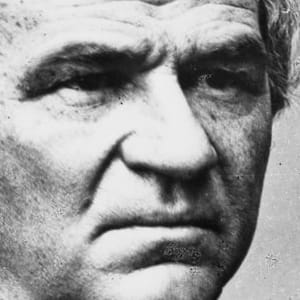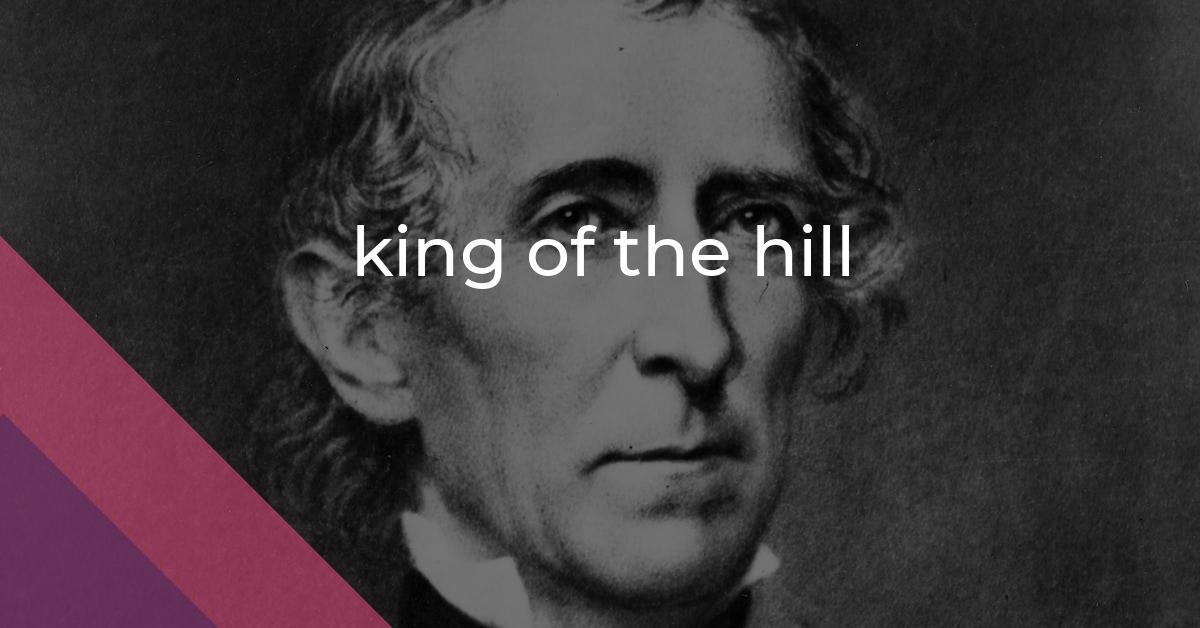king of the hill: Idiom Meaning and Origin
What does ‘king of the hill’ mean?
King of the hill: An idiom meaning the person or thing in the highest or most powerful position, usually achieved through competition or dominance.

Idiom Explorer
The idiom "on top" means to be in control or in a dominant position, especially in a competitive situation.
The idiom "king's ransom" means an extremely large or exorbitant amount of money or valuable things.
The idiom "king's cushion" refers to a position of power or privilege. It implies being in a comfortable and influential role that is highly regarded and protected. This idiom is often used to describe someone who has a coveted or enviable position in society.
When someone is referred to as the "king of the castle," it means they are in a position of power or authority and have control over a particular situation or group of people. This idiom can also imply a sense of dominance and superiority.
The idiom "king of birds" refers to the bird that is considered the most powerful, dominant, or superior among other birds.
The idiom "king of beasts" refers to the lion, the most dominant and powerful animal in the animal kingdom. It symbolizes strength, leadership, and courage.
An idiom meaning an individual or thing that is the most impressive or influential among others in a given field or situation.
The idiom "kick butt" means to take strong, decisive action or to defeat someone or something decisively. It is often used to describe a forceful or aggressive manner of accomplishing a task or overcoming an obstacle.
Decoding Ascendancy
Idiom: king of the hill
King of the hill is an idiom that originated in the United States. It refers to someone who is in a dominant or superior position in a particular context or situation. It is often used to describe a person who is at the top of a hierarchy in politics, business, or any area where power and control are involved.
The origin of this idiom can be traced back to the children's game of "king of the hill." In this game, a group of children would compete to reach the top of a hill or mound and defend their position against others. The goal was to stay at the top and maintain control.
The concept of being the "king of the hill" has since been applied metaphorically to different scenarios. This idiom reflects the desire for power, dominance, and control in various areas of life.
The idiom "king of the hill" is often used in discussions about competition, leadership, and authority. It can refer to someone who is at the pinnacle of their field and has achieved expertise or influence that sets them apart. It can also describe a situation where someone has gained an advantage over competitors and is reigning supreme.
This idiom is frequently used in business and politics to describe individuals or organizations that hold a position of dominance or are in a position to exert significant influence. Being the "king of the hill" can indicate a favorable or advantageous position that leads to greater likelihood of success.
In addition to "king of the hill," there are several related idioms that convey similar meanings. One such idiom is "king of the castle." This idiom is used to describe someone who has achieved the highest position or level of authority in a particular domain. It can be seen as a synonym for "king of the hill."
Another related idiom is "king of birds." This idiom is often used to describe a person who is considered the best or most successful in a particular field or domain. It implies that the person is at the top of the hierarchy and has achieved a level of greatness or excellence.
The idiom "on top" is also related to "king of the hill." It is used to describe someone who is in a position of superiority or dominance. It can refer to someone who is leading in a competition, excelling in their field, or having control over others.
The idiom "high ground" is another related expression. It refers to being in a superior or advantageous position compared to others. This can be both literal and figurative, representing both physical elevation and having an advantage in a competition or situation.
It is important to note that the idiom "king of the hill" is often used figuratively and does not imply literal kingship or rule. Instead, it emphasizes the idea of being at the top or in control.
Overall, the idiom "king of the hill" captures the desire for power, dominance, and control that exists in various aspects of society. It reflects the human inclination to compete, strive for superiority, and reach the pinnacle of success. While the idiom provides a vivid image of someone reigning supreme, it also leaves room for interpretation and exploration of the complexities and nuances associated with power dynamics.
Example usage
Examples of how the idiom king of the hill can be used in a sentence:
- After winning the surfing competition, Mark became the king of the hill and everyone looked up to him.
- During the debate, Sarah's compelling arguments made her the king of the hill as the audience admired her confidence and intelligence.
- In the business world, the company with the highest market share is often considered the king of the hill and sets the standards for others to follow.
More "Competition" idioms



